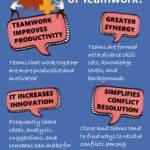
The Enigma of the Two Men and a Bar
Two Men and a Bar is a fun exercise in lateral thinking to encourage creativity, develop critical thinking skills and energize the group.
Challenge your group to solve a mystery as quickly as possible. To help them find a solution, your group can only ask you questions that can be answered with “YES” or “NO.”
Gather your group, invite them to sit them down and present the ‘facts, the whole facts and nothing but the facts’ of a particular situation. Then, you then invite your group to ask a series of questions that can be answered only with a “YES”, “NO” or ‘IRRELEVANT” reply.
Two men go into a bar and order exactly the same drink. The first man chugs his drink while the second man savours it. Within an hour, the second man dies. Why?
Often times, a group will ask questions that are irrelevant or do not help the group to get closer to a solution. If this occurs, simply say “IRRELEVANT” and invite another question.
As the minutes tick by, your group will narrow their focus and finally arrive at the solution. On occasions, you may need to guide your group to ask questions about a certain topic to draw them closer to a solution.
As with all lateral-thinking exercises, it is critical that you do not let these mysteries linger for too long, lest people disengage.
By the way, the answer to the riddle is that the ice cubes in both drinks were poisoned. The first man did not give time for the ice to melt. The second man took a sip of his drink, giving the ice time to release its poison.
Moment of Reflection
- What reactions did you observe from the group when the mystery was first announced?
- What feelings did you or the group experience during the activity? Why?
- Did you or the group make any assumptions? Provide an example.
- How easy was it to identify and/or dismantle these assumptions?
- In our lives we make assumptions? How do we validate if they are true or not? Did they make bad decisions by not validating the assumptions?
The topics of this publication: teamwork, creativity, motivation, interactions, active listening, imagination, brainstorming, energize


